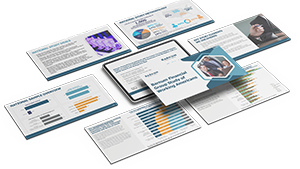
Frugal people are known for not spending money. This reputation harbors much truth, but not always. Frugality doesn’t mean pinching as many pennies as possible, it’s also a long-term strategy to save money. If you see a frugal person making a big purchase, you should be sure they’ve given it much thought.
It’s possible to be both frugal and rational. This means you’ll have to let go of some money. It also means you’ll see a return in the future. After a while, you’ll be glad you made certain purchases. These money-saving habits aren’t just reserved for frugal people, they’re the things smart people do.
1. Buy Insurance
Smart people invest in insurance for big products like their smartphone or laptop because the replacement or repair could be far more expensive. If the insurance is never used, $200 might be lost. If you shatter your laptop’s screen, it might cost $600 for one incident.
They’d never even think about getting car insurance. The thought of major car repairs is enough to cause nightmares, but the thought of dealing with another person’s car after an accident is even worse. Car insurance is one of those things you hope to never use. If you use it once, you’ll be glad you had it.
2. Buy Quality Where It Matters
Saving money requires a knowledge of your habits. If you wear certain clothes a few times, there’s no need to spend a lot. A frugal person will invest in quality if it means replacing an item a fewer number of times. A shirt for work is worth spending a few extra dollars if it means less maintenance and more wears without replacement.
3. Buy in Bulk
Shopping in bulk is a rich person’s sport. When most people make a purchase, they look at the price tag. Frugal people look at the cost per unit to find the best deal. They know not to spend $3.99 on a four-pack of toilet paper when a twelve-pack costs $8.99. Essential items like that will get used and never go bad, so the cost per sheet is more important than the single transaction.
4. Address Problems Quickly
Some products are designed to be replaced, but others are designed to get repaired. Money savers know not to let problems linger because a small issue can easily transform into a bigger one. If you can prevent a bigger repair or even a replacement, it’s best to face the situation and fix problems quickly.
Imagine never getting an oil change when your car gives you a warning. The oil change costs about $34.99 if you’re not doing it yourself. Replacing your engine costs a lot more. Other products experience issues that can expand, whether it’s a problem with your washing machine or your health. Taking care of it quickly will save money in the long run.
5. Get Things Done Right
Some people think they can solve small problems by themselves. With the power of the internet and YouTube, you can get a tutorial for anything. That doesn’t make you an expert and soon you’ll be causing more damage than repair. Smart spenders stick to what they’re good at and leave the rest to the pros.
6. Invest in Education and Motivation
If you’re looking to increase your employment potential, you might invest in education. Even if it’s just a single course or a certification, having increased credentials can help you earn a promotion or raise. Your newly acquired skills can translate to a secondary source of income or new career prospects. The costs of a degree look extreme upfront, but the long-term benefits can exceed the initial investment.
7. Invest in Your Future
While saving money technically isn’t spending it, certain contributions will allow you to save money in the future. These often mean you won’t have limitless access to money in the present, but eventually, you’ll see a benefit. Take the importance of having a Health Savings Account. This fund allows for pre-tax contributions and never taxes you when using the funds for medical expenses.
For some people, this could mean investing in stocks, for others, it may be a Roth IRA. Being financially savvy means knowing how not to pay taxes when they don’t have to be paid. It also means when you’re not spending money, you want to grow it. It might not be accessible at this very moment, but in the future, you’ll be happy with the savings and growth.




